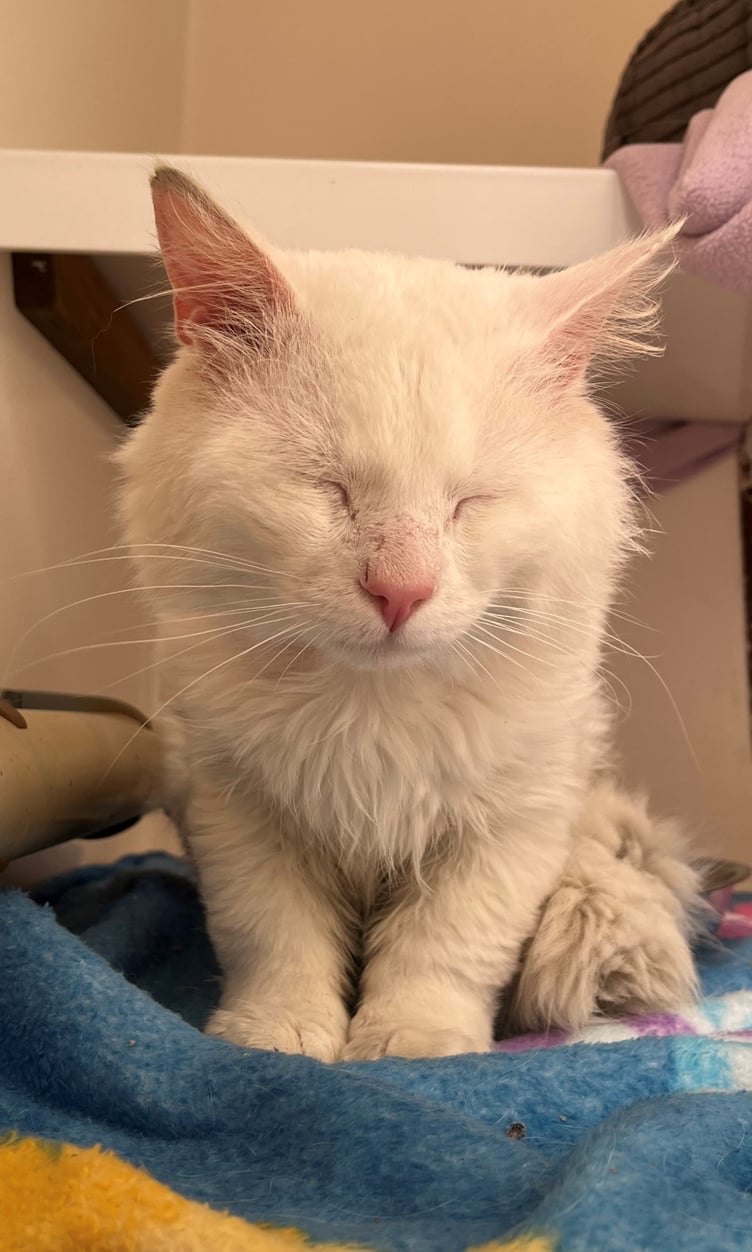If you are constantly feeling dog-tired, it could be that your dog, or your cat, is to blame.
A recent study in the USA has shown that dog and cat owners are more likely to have sleep disorders than people without pets.
It looked at data for more than 5,000 people and summarised that, while pet ownership often has therapeutic benefits that may improve an owner’s levels of anxiety, stress and depression, pets all too often disrupt their owner’s sleep.
In the study, dog owners were found to be 37% more likely to report trouble sleeping compared to those without dogs and cat owners were 41% more likely to have sleep issues.
The study did not, however, ask whether the dogs and cats were allowed to sleep in their owners’ beds
An earlier study in 2020, commissioned by a well-known bed manufacturer, did delve into this detail.
It found that eight out of 10 pet owners are prepared to compromise their own sleep for their pet’s comfort – a quarter will allow their pet to ‘steal the duvet’, and 12% stated that they were prepared to ‘kick their partner out of bed’ to give their pets more room.
Cats, in particular, are likely to move on and off their owner’s bed, and cause more disruption, because they are genetically programmed to be active at night.
They are natural predators, and their brains and bodies are designed for hunting in the dark when their excellent eye sight helps them catch prey undetected.
Even though they are domesticated, our cats still display many behaviours found in wild cats such as lions and tigers.
Cats spend a remarkable amount of time being inactive and can sleep for up to 20 hours a day.
This, again, links back to genetics, since hunting takes a lot of energy and sleeping as much as possible builds up reserves.
But only about 25% of a cat’s sleep is actually deep sleep, while the other 75% is spent lightly snoozing – literally cat-napping.
They still get plenty of rest, but are still alert enough to wake up quickly.
Once again, this comes from their primal instincts.
You can tell if your cat is just snoozing because it’s likely that their eyes will be slightly open and their ears will twitch and rotate towards noises.
A cat in deep sleep is likely to breathe more slowly and heavily and even snore.
Cats can have dreams when they are deeply asleep – their whiskers will twitch quite frenetically, their paws will move up and down as if they are walking, and they may even meow.
We have a very laid-back cat in our cattery at the moment called Spud, who likes to catch 40 winks as much as possible.
He’s a young cat, but we don’t know his precise age because he was brought in to us as a stray from central Douglas.
We think he had been living outdoors for a while, because his beautiful white coat was grey and matted.
Spud isn’t deaf, although white cats are prone to hearing issues with as many as 50% being completely deaf. His ears will, however, need to be carefully monitored in sunny weather because they are going to be prone to sunburn, which could lead to cancer.
A timely reminder, then, for all owners of white/light-coloured pets to apply pet-safe suncream to exposed areas such as ears and noses.
Although Spud is a little bit timid when he first meets people, he’s very human-orientated and enjoys being stroked and fussed over.
He would enjoy a quiet new home with access to the outdoors, ideally a home with a large garden or in a rural setting.


.png?width=209&height=140&crop=209:145,smart&quality=75)


Comments
This article has no comments yet. Be the first to leave a comment.